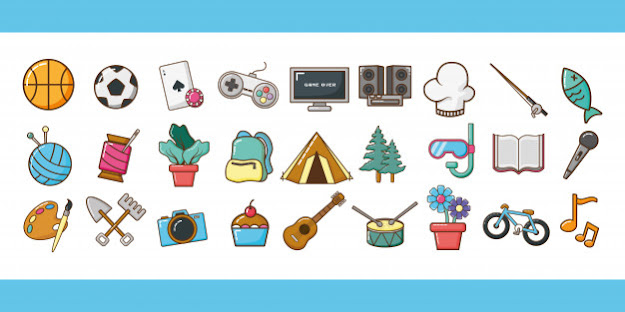Interview FAQs: What are your interests, hobbies, and passions?
Most of the aspirants are muddled in categorizing their activities as hobbies, interests, or passions. Most of the time, they have the same answer for all these three different brackets. In this post, I'll clear some air, so that everyone could accurately position their activities in the correct bracket. I'll also shed some light on the other aspects of this question. Hence, make sure to read the entire post.
Why do panelists want to know your interests, hobbies, and passions?
Look! Every institute or employment wants diversity in terms of gender, academics, culture, and also talent. The more variety and heterogeneity an organization or institute has, the better it is for them to keep attracting more talented people. It makes sure that the institute doesn't diminish its value in terms of talent. They also want to know if you are an interesting, creative, or enthusiastic person. An idiosyncratic person with some unique qualities is always valued more and therefore is preferred over others. In B-Schools, there are various clubs and committees which are student-driven. Each club or committee demands different expertise. An extrovert person with excellent communication and interpersonal skills is better suited for the Aspirant Relations Committee, whereas the one with excellent singing and dancing skills is better suited for the Cultural Committee.
I guess you must have figured it out till now. (If not,
that's ok, I'll explain.)
When they ask you about your interests, hobbies, and
passions during B-School interviews, they want to know if you can contribute
towards the clubs and committees in the college after getting selected. They
scrutinize whether or not you have that potential, prowess, artistry, mastery,
and caliber coupled with the right amount of interest to be able to contribute
towards the college's committees and clubs. If you are an extraordinary person,
then your chances of getting selected are a little higher. These are some of
the indirect ways in which interviewers will examine you and your level of
interest in the college's clubs and committees.
How to properly position your interests, hobbies, and
passions?
Let's interestingly understand this with some wonderful examples.
If Tony has recently started watching Guitar tutorials on the internet and continues to do so for a couple of days, then one can say he has started developing an interest in learning guitar.
After watching Guitar tutorials for a few days, Tony finally decides to purchase a guitar and take tuitions in it. He has been regularly going to the tuition for over a month and wishes to continue. Now, we can say that playing guitar is Tony's hobby.
Then comes a time when Tony starts getting really crazy for Guitar and wants to play it every now and then. It is not his hobby anymore. He plays Guitar at his local community club, college functions, or social events, and keeps doing it for years. In this scenario, we can say that Tony is passionate about Guitar.
Remember, if we divide interests, hobbies, and passions into
different levels, then
Interests = Level 1
Hobbies = Level 2
Passions = Level 3
Interest may or may not become your hobby, a hobby may or may not become your passion, and a passion is something unimaginable to get rid off. You may start finding your mental peace attached to it. There comes a time when people get defined by their passions. Now, you need to self-introspect, and categorize your activities or skills accurately. If you are someone like ME with no hobbies or interests (JOKING 🤣), then it's high time you find one. Keep trying activities you find interesting and stick to the one you like the most. It can be either indoor activities or outdoor, doesn't matter.
How to answer this question perfectly?
When asked about interests, hobbies, or passions, you need to back it up with some concrete data or at least have a story for its support. In your story you can talk about a variety of things like your discovery, who inspired you, what motivated you, when did it happen, how did it happen, where did it happen, your entire journey, and ups and downs. Don't brag about your activities or achievements, but portray it in a humble way. Mention your learnings and talk about how your interests or hobbies or passions have shaped you as a person. If drawing is your passion, you should have won awards and certificates in that field. If singing is your hobby, be ready to sing. If you are interested in the Marketing specialization, it's expected that you have some basic knowledge about the domain. Do your research on Marketing subjects, Marketing clubs and committees in the college, job roles offered and profiles in Marketing, names of FMCG companies and their CEOs, etc. Make sure to read Marketing Management by Philip Kotler, if you are interested in the Marketing domain.
Note:
- In case you have any queries, feel free to message me on Instagram.
That's it from my side.
I hope you convert all your interviews.
BEST WISHES!




Comments
Post a Comment